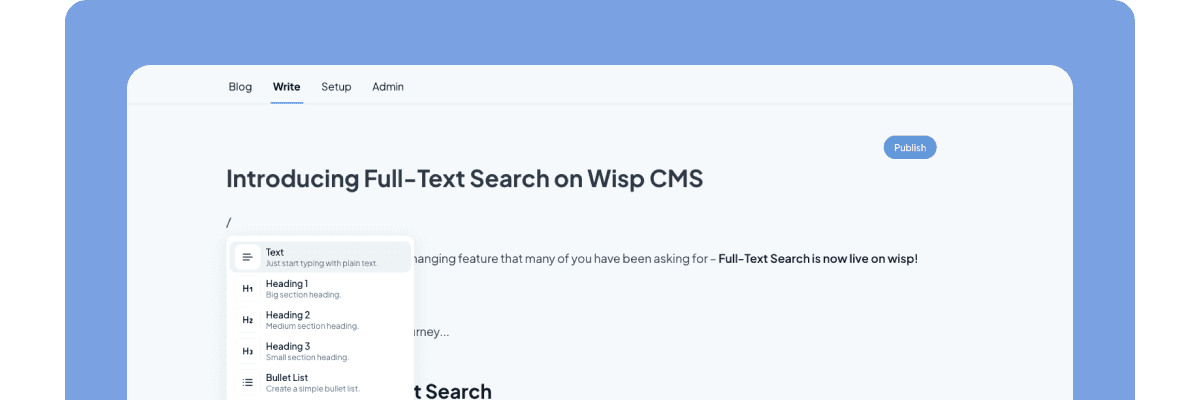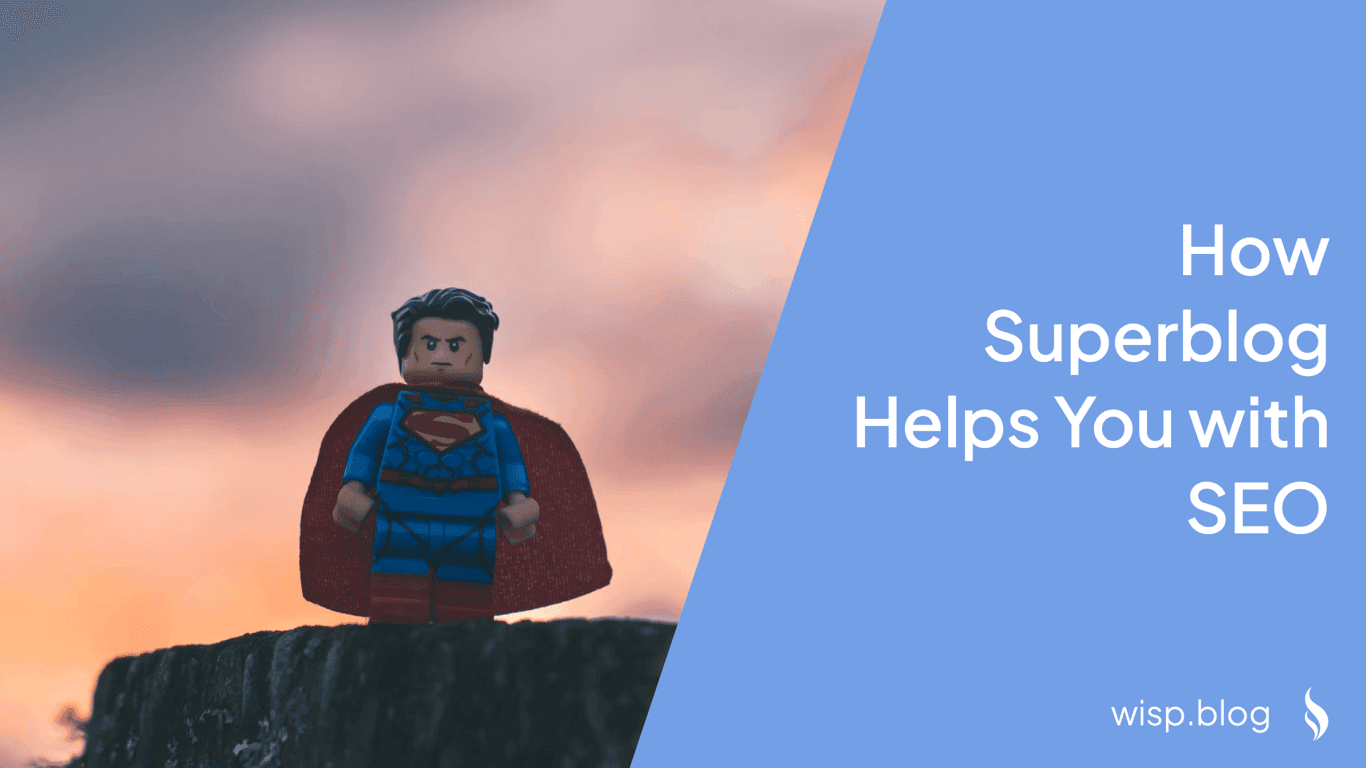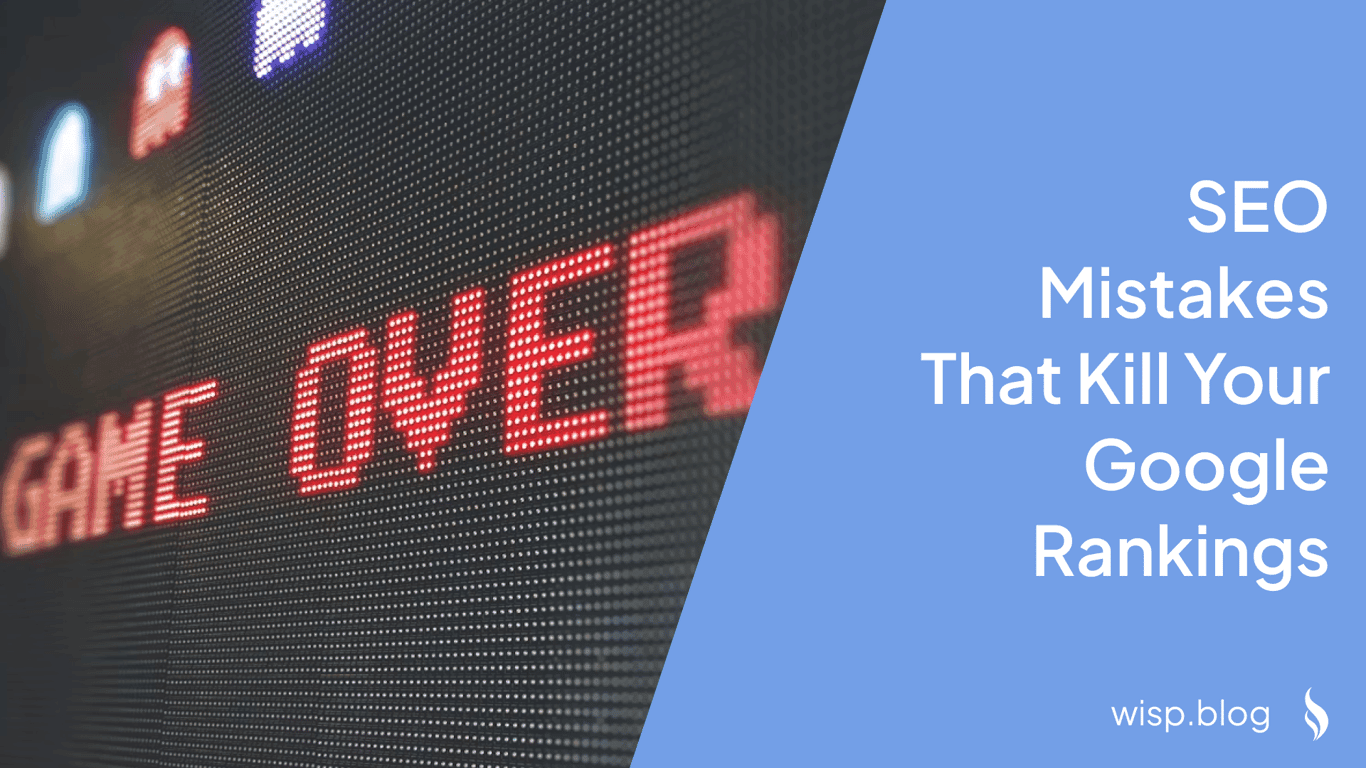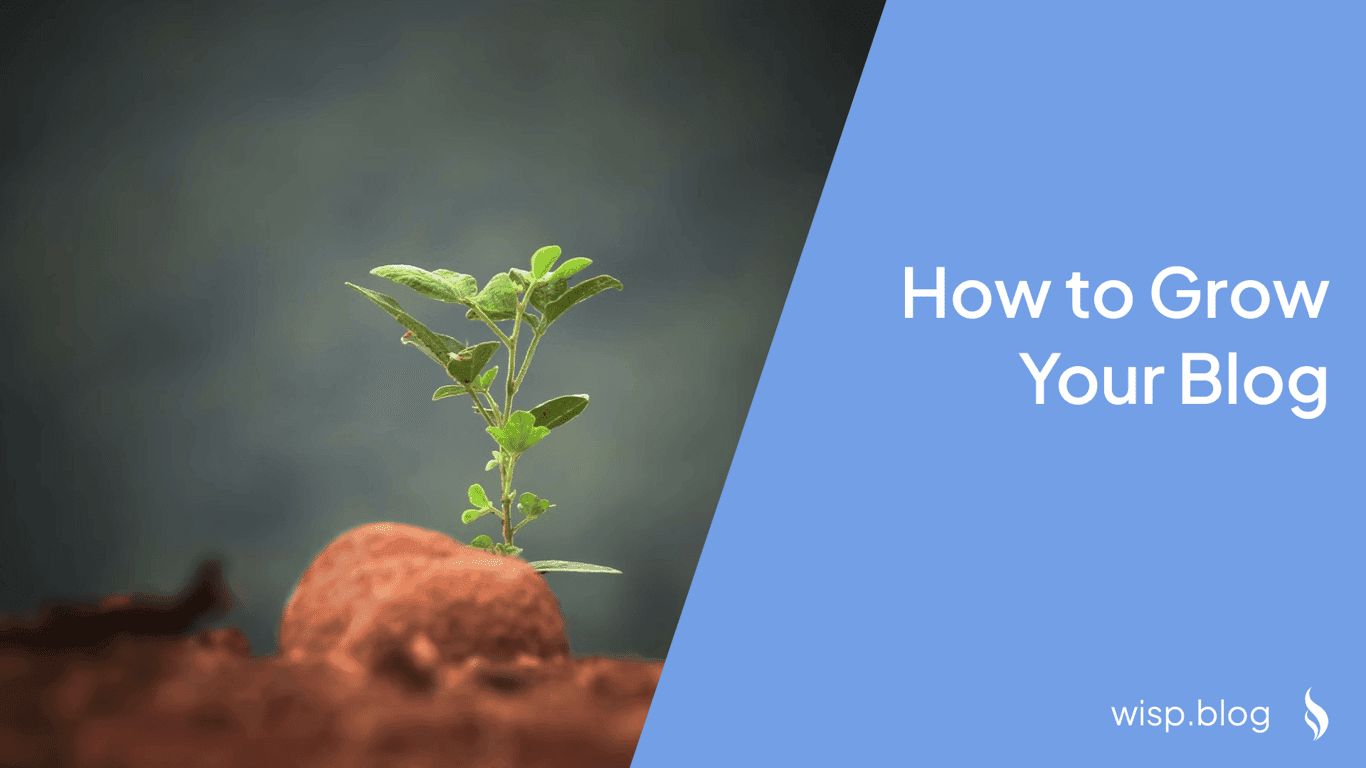
Understanding SEO for Bloggers
When it comes to blogging, understanding and implementing SEO (Search Engine Optimization) strategies can be a game-changer for your blog's success. SEO refers to the practices and techniques used to optimize your website to rank higher in search engine results pages (SERPs). By implementing effective SEO strategies, you can increase your blog's visibility and drive organic traffic to your content.
Importance of SEO in Blogging
SEO plays a crucial role in the world of blogging. It helps your blog get discovered by search engines and directs relevant traffic to your content. Here are a few reasons why SEO is important for bloggers:
Increased visibility: By optimizing your blog for search engines, you increase the chances of appearing in the top search results, making it more likely for users to find and visit your blog.
Targeted traffic: SEO helps attract users who are actively searching for the topics you cover in your blog. This targeted traffic is more likely to engage with your content, increasing the chances of conversions, such as subscribing to your newsletter or purchasing products/services you offer.
Long-term results: Unlike paid advertising, SEO can provide long-term results. Once your blog starts ranking for relevant keywords, you can continue to receive organic traffic without ongoing advertising costs.
Credibility and authority: A well-optimized blog that consistently provides high-quality content earns credibility and authority in the eyes of both search engines and users. This can lead to more opportunities, such as guest posting, collaborations, and partnerships.
How SEO Can Drive Traffic to Your Blog
SEO can drive significant traffic to your blog if implemented effectively. Here are a few ways SEO strategies can help boost your blog's traffic:
Keyword optimization: By conducting thorough keyword research, you can identify the keywords and phrases that your target audience is searching for. By incorporating these keywords strategically into your blog posts, you can increase your chances of ranking higher in search results and attracting relevant traffic.
Meta tags and descriptions: Optimizing your meta tags (title tags and meta descriptions) with relevant keywords and compelling descriptions can entice users to click on your blog when it appears in search results. It's important to create unique and descriptive meta tags for each blog post to maximize their effectiveness.
High-quality content: Crafting high-quality, informative, and engaging content is crucial for both users and search engines. By providing valuable content that answers users' questions and satisfies their search intent, you can improve your blog's visibility and attract more organic traffic.
Building backlinks: Acquiring quality backlinks from reputable websites can enhance your blog's authority and improve its visibility in search results. Building relationships with other bloggers and influencers in your niche can help you secure backlinks through guest posting, collaborations, or mentions.
Social media leverage: While social media signals do not directly impact search engine rankings, leveraging social media platforms can help increase the visibility of your blog posts. By sharing your content on social media, you can attract more traffic, engagement, and potentially earn natural backlinks from users who find your blog valuable.
Understanding SEO and implementing effective strategies is essential for bloggers who want to maximize their blog's reach, increase organic traffic, and attract a loyal audience. By incorporating SEO into your blogging efforts, you can position your blog for long-term success and achieve your goals.
Keyword Research
Keyword research is a vital aspect of SEO for bloggers. By understanding the search terms and phrases that users are using, bloggers can optimize their content to attract more organic traffic. In this section, we will explore two key components of keyword research: conducting keyword research and utilizing long-tail keywords.
Conducting Keyword Research
Conducting thorough keyword research is the foundation of effective SEO for bloggers. It involves identifying the keywords and phrases that are relevant to your blog niche and have a good search volume. By targeting these keywords in your content, you increase the likelihood of your blog posts appearing in search engine results.
To conduct keyword research, there are several tools available that can assist you in finding relevant keywords. These tools provide insights into search volume, competition, and related keywords. Some popular keyword research tools include Google Keyword Planner, SEMrush, and Ahrefs.
When conducting keyword research, consider the intent behind the search queries. Are users looking for information, products, or solutions? Understanding user intent allows you to create content that aligns with what users are searching for, increasing the chances of attracting relevant traffic to your blog.
Utilizing Long-Tail Keywords
In addition to targeting broad keywords, bloggers should also focus on utilizing long-tail keywords. Long-tail keywords are more specific phrases that often have lower search volume but higher conversion rates. These keywords typically consist of three or more words and are more targeted to a particular topic or query.
By incorporating long-tail keywords into your content, you can attract a more qualified audience who are actively seeking the information or solution you provide. Long-tail keywords also tend to have less competition, making it easier for your blog posts to rank higher in search engine results.
For example, instead of targeting the broad keyword "blogging platforms," you can use long-tail keywords like "best blogging platforms for beginners" or "free blogging platforms for fashion bloggers." These specific keywords not only help you narrow down your target audience but also increase your chances of ranking higher for those specific search queries.
Remember to include a mix of both broad keywords and long-tail keywords in your content strategy. Broad keywords can help you attract a larger audience, while long-tail keywords allow you to target a more specific and interested audience.
By conducting thorough keyword research and utilizing a combination of broad keywords and long-tail keywords, bloggers can optimize their content to rank higher in search engine results and attract more targeted organic traffic to their blogs. For more information on blogging, check out our article on best blogging platforms.
On-Page SEO Strategies
To optimize your blog for search engines and improve its visibility, implementing effective on-page SEO strategies is essential. These strategies involve optimizing meta tags and descriptions, as well as creating high-quality content that aligns with your target audience's needs and interests.
Optimizing Meta Tags and Descriptions
Meta tags and descriptions play a crucial role in improving your blog's search engine visibility. These elements provide information about your blog posts to search engines and users. By optimizing them, you can increase the chances of your blog appearing in relevant search results.
Meta Tags: Meta tags include the title tag and meta description. The title tag should be concise, descriptive, and contain relevant keywords. It should give users a clear idea of what your blog post is about. The meta description, on the other hand, provides a brief summary of the content and entices users to click through to your blog. It should be compelling, informative, and include relevant keywords.
Example:
<title>On-Page SEO Strategies for Bloggers | Your Blog Title</title>
<meta name="description" content="Learn effective on-page SEO strategies to improve your blog's search engine visibility. Optimize meta tags and descriptions, and create high-quality content.">
Crafting High-Quality Content
Creating high-quality content is the backbone of successful blogging and SEO. When crafting your blog posts, consider the following strategies to optimize them for search engines:
Keyword Optimization: Conduct thorough keyword research to identify relevant keywords and phrases that your target audience is searching for. Incorporate these keywords naturally into your blog post title, headings, and throughout the content. However, avoid keyword stuffing, as it can negatively impact your SEO efforts.
Structured Content: Organize your blog posts using clear headings and subheadings. This makes it easier for both search engines and readers to understand the hierarchy and flow of your content. Use appropriate heading tags (H1, H2, H3, etc.) to structure your content.
Engaging and Informative Writing: Write compelling and informative content that addresses your audience's pain points, questions, or interests. Aim to provide value and establish yourself as an authoritative source in your niche. Incorporate relevant internal links to other articles on your blog to keep users engaged and help search engines understand the relationships between your content. For example, if you're looking for inspiration, check out our article on blog post ideas.
Optimized Images: Use descriptive file names and alt tags for your images. This helps search engines understand what the image is about and improves its chances of being indexed. Additionally, properly compressed images can improve the loading speed of your blog, which is an important aspect of technical SEO.
By implementing these on-page SEO strategies, you can enhance your blog's visibility, attract more organic traffic, and provide a better experience for your readers. Remember to regularly analyze and adjust your strategies based on the performance metrics and search engine algorithm updates to stay ahead in the ever-evolving SEO landscape.
Off-Page SEO Strategies
While on-page SEO is crucial for optimizing your blog content, off-page SEO strategies are equally important to improve your blog's visibility and authority. Two key off-page SEO strategies that every blogger should know are building backlinks and leveraging social media for SEO.
Building Backlinks
Building backlinks, also known as inbound links, is an essential off-page SEO strategy. Backlinks are links from external websites that direct traffic to your blog. The more high-quality backlinks you have, the more search engines perceive your blog as credible and authoritative.
To build backlinks, consider the following strategies:
Guest Blogging: Contribute guest posts to reputable blogs in your niche. Include a link back to your blog in the author bio or within the content itself, if allowed. This helps you showcase your expertise and gain exposure to a new audience while earning valuable backlinks.
Outreach and Networking: Reach out to other bloggers, influencers, and industry experts in your niche. Establish genuine connections and offer to collaborate on content or share each other's blog posts. This can lead to valuable backlinks and increased visibility.
Content Promotion: Create high-quality, informative content that others find valuable. When your content is valuable, other websites and bloggers are more likely to link to it as a reference or resource. Share your content on social media platforms, join relevant online communities, and engage with your audience to increase the chances of earning backlinks.
Remember, the key to successful backlink building is to focus on quality over quantity. Aim for backlinks from authoritative websites that are relevant to your niche. Avoid spammy or low-quality backlinks, as they can have a negative impact on your blog's SEO.
Leveraging Social Media for SEO
Social media platforms provide a powerful opportunity to enhance your blog's SEO and drive traffic. Utilize these strategies to leverage social media for SEO:
Content Promotion: Share your blog posts on social media platforms to increase their visibility and reach a wider audience. Craft compelling captions and include relevant hashtags to optimize your posts for searchability.
Engagement and Interactions: Engage with your audience, respond to comments, and encourage discussions around your blog content. This helps build a community and encourages social media users to share your content, leading to increased visibility and potential backlinks.
Social Sharing Buttons: Incorporate social sharing buttons on your blog posts to make it easy for readers to share your content on their social media profiles. This can lead to more exposure and potential backlinks as others discover and share your blog posts.
Social Bookmarking: Utilize social bookmarking platforms like Reddit, Pinterest, and StumbleUpon to share your blog posts. These platforms allow users to discover and save content, increasing the chances of driving traffic to your blog.
By building backlinks and leveraging social media for SEO, you can enhance your blog's visibility, authority, and overall search engine rankings. Remember to focus on creating valuable content, engaging with your audience, and establishing connections with other bloggers and industry experts. These off-page SEO strategies, when combined with effective on-page SEO techniques, can significantly boost the success of your blog.
Technical SEO
In addition to on-page and off-page SEO strategies, bloggers should also pay attention to technical SEO aspects to ensure optimal website performance and improved search engine visibility. Two important components of technical SEO are improving site speed and mobile optimization.
Improving Site Speed
Site speed plays a crucial role in user experience and search engine rankings. Slow-loading websites can lead to high bounce rates and lower search engine visibility. To improve site speed, bloggers can consider the following techniques:
Optimize images: Compress images without compromising quality to reduce file sizes and improve loading times.
Enable caching: Implement browser caching to store static files, such as CSS and JavaScript, locally on visitors' devices, reducing the need for repeated downloads.
Minify code: Remove unnecessary characters, white spaces, and line breaks from HTML, CSS, and JavaScript files to reduce their size.
Choose a reliable hosting provider: Selecting a reputable hosting provider with high-performance servers can significantly impact site speed.
Monitor plugins: Regularly review installed plugins and remove any that are unnecessary or cause significant slowdowns.
By implementing these strategies, bloggers can enhance the overall user experience and encourage visitors to spend more time on their websites.
Mobile Optimization for SEO
With the increasing use of mobile devices, optimizing websites for mobile users is crucial for SEO success. Search engines prioritize mobile-friendly websites in their search results, making mobile optimization a key factor in driving organic traffic. Here are some essential steps for mobile optimization:
Responsive design: Use a responsive design that adapts to different screen sizes and devices, ensuring a seamless user experience.
Mobile-friendly content: Format content to be easily readable on smaller screens, with clear headings, legible font sizes, and appropriate spacing.
Mobile optimization plugins: Consider using mobile optimization plugins or themes that optimize your website for mobile devices.
Test mobile-friendliness: Utilize tools like Google's Mobile-Friendly Test to evaluate the mobile-friendliness of your website and identify areas for improvement.
Accelerated Mobile Pages (AMP): Implement AMP to create lightweight versions of your web pages, offering faster load times for mobile users.
By prioritizing mobile optimization, bloggers can reach a wider audience and improve their website's visibility in mobile search results.
Ensuring that your website is technically optimized is a critical step in your SEO journey as a blogger. By focusing on improving site speed and optimizing for mobile devices, you can enhance user experience, increase engagement, and boost your search engine rankings. For more information on blogging-related topics, check out our articles on best blogging platforms, and blog post ideas.
Measuring SEO Success
To gauge the effectiveness of your SEO strategies as a blogger, it's crucial to track key metrics and make adjustments as needed. By monitoring these metrics, you can gain valuable insights into the performance of your blog and identify areas for improvement.
Tracking Key Metrics
There are several key metrics you should keep an eye on to measure the success of your SEO efforts:
Organic Traffic: This metric indicates the number of visitors who find your blog through search engines. By tracking organic traffic, you can assess the impact of your SEO strategies on driving relevant traffic to your blog.
Keyword Rankings: Monitoring your keyword rankings allows you to see how well your blog posts are performing in search engine results pages (SERPs). By tracking the positions of your target keywords, you can identify opportunities to optimize further and improve your visibility.
Bounce Rate: Bounce rate measures the percentage of visitors who leave your blog after viewing only one page. A high bounce rate may indicate that your content or user experience needs improvement. Analyzing bounce rate can help you identify areas to optimize and make your blog more engaging.
Conversion Rate: Conversion rate tracks the percentage of visitors who take a desired action, such as signing up for a newsletter or making a purchase. By analyzing conversion rate, you can assess the effectiveness of your SEO strategies in driving meaningful interactions with your audience.
Backlinks: Backlinks play a vital role in SEO as they indicate the authority and relevance of your blog. Tracking the number and quality of backlinks can provide insights into your blog's reputation and influence within your niche.
To track these metrics, you can utilize various analytics tools like Google Analytics or third-party SEO tools. Regularly reviewing and analyzing these metrics will help you understand the impact of your SEO strategies and make data-driven decisions to optimize your blog further.
Adjusting Strategies for Better Results
SEO is an ongoing process, and it's essential to continuously adapt your strategies to achieve better results. Here are a few steps you can take to adjust your SEO strategies:
Analyze Data: Regularly review your SEO metrics to identify patterns, trends, and areas of improvement. Look for keywords that are performing well and those that may require further optimization.
Content Optimization: Based on your keyword analysis, refine your content to make it more relevant and valuable to your target audience. Optimize your blog posts by incorporating target keywords naturally and providing comprehensive, high-quality information.
Link Building: Focus on building high-quality backlinks to enhance your blog's authority and visibility. Seek opportunities for guest blogging, collaborations, or outreach to relevant websites within your niche.
Technical Enhancements: Continuously improve the technical aspects of your blog. Optimize site speed, ensure mobile-friendliness, and enhance user experience to improve your SEO performance.
Stay Updated: SEO practices evolve over time, so it's crucial to stay informed about the latest trends and algorithm updates. Keep learning and adapting your strategies to align with the current best practices.
By consistently tracking key metrics and adjusting your SEO strategies accordingly, you can optimize your blog's performance and drive increased visibility, organic traffic, and engagement.
Remember, SEO is just one aspect of successful blogging. To maximize the potential of your blog, consider exploring other topics such on our blog.



